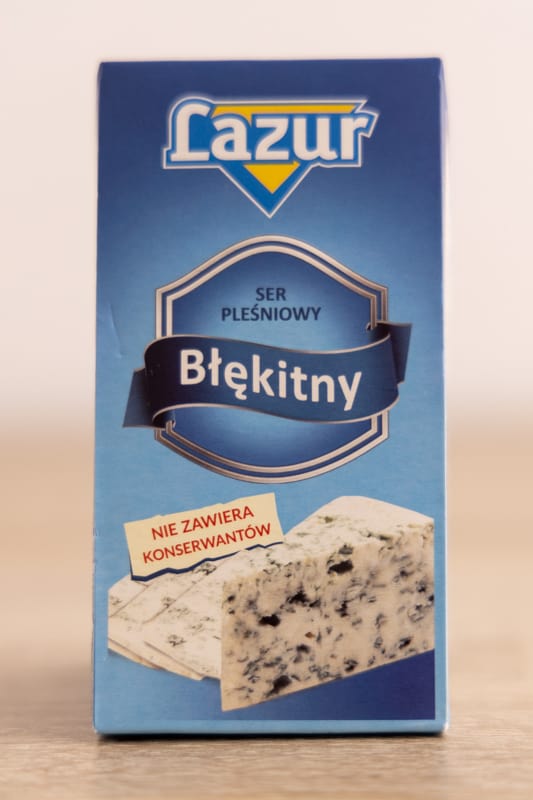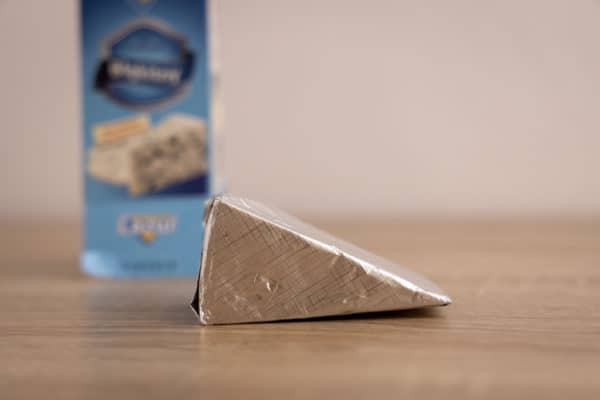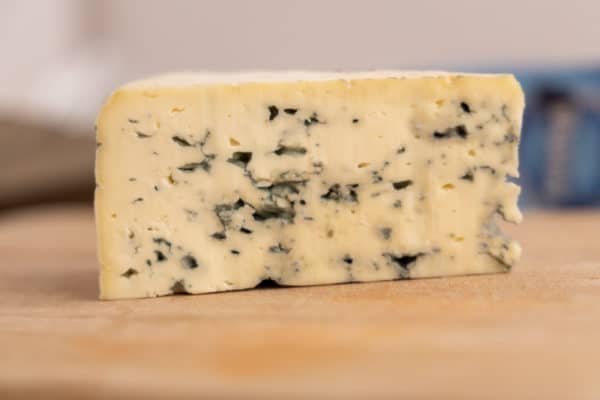How Long Can You Keep Blue Cheese Crumbles
Blue cheese has a very distinctive taste, but there's one question about it that many people are thinking about: "can blue cheese go bad"?
Since there's mold on the surface of the cheese already, it's technically "bad" already. But can it actually go bad in a way it's not safe to eat? Actually, it can.
The mold of the surface is created by edible mold (Penicillium) culture, so it's safe to eat. But if other bacteria will be able to develop in the cheese, it will go bad and the only thing you would be able to do is to discard it.
After establishing those facts, let's talk about storing blue cheese, its shelf life, and how one can tell if it's spoiled or not. Sounds interesting? Read on.

Storing blue cheese
Storing this distinctive dairy product is a bit more tricky than most other dairy products. And similar to brie cheese.
Since on the surface of this cheese there are living organisms that need air, wrapping it tightly in plastic wrap and putting into the fridge isn't a good idea. If you do that, the cheese's taste will deteriorate quite quickly.
The thing to do is to wrap the wedge in the foil it comes in. Or, if you've already discarded it, in parchment or wax paper.
Don't discard the foil blue cheese comes wrapped in. Use it for storage instead.

This way the cheese won't pick up any of those fridge odors while still being able to get some air.
Of course, you should store blue cheese in the fridge.
If you need to store this cheese for a longer period of time, cut it into smaller portions (half a pound or smaller), wrap tightly in freezer wrap or put into a freezer bag and freeze it.

Shelf life of blue cheese
If you keep blue cheese on the kitchen counter, it will last only a couple of days.
If you'll store it properly, i.e. keep it wrapped in the fridge, it can be stored there for up to 3 to 4 weeks. Check the date on the package, and add a week or so.
Opening the foil and carton package of blue cheese (like the one I photographed for this article) doesn't really change its shelf life. You can still store it up to its date, and often a bit longer.

When it comes to blue cheese sold in an airtight container, it also can keep up for a few weeks of opening it. That is, if you wrap it well. But the label often suggests eating it within a week or so for best quality.
If you will decide to freeze blue cheese, it can technically be frozen forever, but for the best quality, it shouldn't be frozen for longer than about half a year.
One important thing about freezing blue cheese – it becomes crumbly and loses some of its taste after thawing, so it will be best if you'll use thawed blue cheese only in cooked dishes (like casseroles, stews, etc.).

How to tell if blue cheese is bad?
Don't eat blue cheese that has any mold that's not native to the cheese on it, the creamy part of the cheese has turned pink, brown, or yellow, or if it smells similar to ammonia.
When it comes to non-native mold, look at my photos. Your blue cheese should look similar.
If there's some fuzzy greyish mold on the surface, it means the cheese has caught some extra mold spores. And it's not fit for consumption anymore.
Another thing is the color of the creamy part of the cheese – if it's changed (it's pinkish, greenish, or maybe even brownish), the cheese is bad.
The smell of the cheese is a good indicator of spoilage too. If it's not natural blue cheese smell, but rather is somewhat similar to ammonia's smell, it's bad.
If you're not 100% sure it's okay, cut your loses and get rid of it.

Summary
- Blue cheese keeps up for up to a couple of weeks past its date.
- Store it in the fridge, and make sure the leftover cheese can breathe.
- Either use the foil it often comes in, or opt for parchment paper, wax paper, or cheese wrap.
- If there's some mold that's not native to the cheese, discard it. Same thing if it smells like ammonia or the creamy part has changed color.

How Long Can You Keep Blue Cheese Crumbles
Source: https://www.canitgobad.net/can-blue-cheese-go-bad/